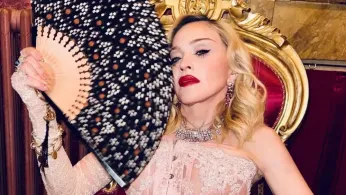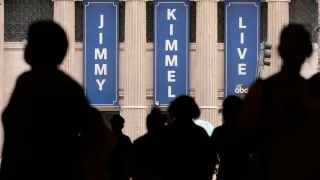
3 hours ago
Madonna’s “Confessions 2” Signals Dancefloor Renaissance
READ TIME: 3 MIN.
In a move that has sent shockwaves of excitement through the music industry and LGBTQ+ communities around the world, Madonna has officially confirmed the release of her highly anticipated new album, “Confessions Part 2,” due in 2025. The project sees her reunited with legendary producer Stuart Price, the creative force behind her 2005 dance-pop masterpiece, “Confessions on a Dance Floor.” This announcement, paired with a visually stunning photoshoot and heartfelt messages from Madonna herself, signals not only a musical renaissance for the Queen of Pop but also a meaningful touchstone for LGBTQ+ fans who have long found community and liberation on the dancefloor .
The rumors began swirling in late 2024 when Madonna, after wrapping her “Celebration World Tour,” was spotted in London studios with Stuart Price. Social media exploded after Madonna posted behind-the-scenes photos, revealing her signature playfulness and creative energy. “The creative process has been my medicine for my soul, and writing these songs has saved me. I’ve poured my heart and soul into this music,” Madonna wrote in a caption accompanying an image of herself and Price in the studio . The album’s cover, featuring a glamorous black-and-white portrait with a pink heart over Madonna’s mouth, hints at themes of love, transformation, and unapologetic self-expression.
Fans, many of whom are LGBTQ+ and who helped solidify “Confessions on a Dance Floor” as a generational queer classic, immediately embraced the news. The hashtag #Confessions trended globally, with fans sharing stories of how Madonna’s music has been a soundtrack to their own journeys of self-acceptance and pride .
The original “Confessions on a Dance Floor” was more than just an album; it was a cultural phenomenon. Released in 2005, it debuted at number one in over 40 countries and produced enduring anthems like “Hung Up” and “Sorry.” Its pulsing beats and disco revivalism became synonymous with queer nightlife, offering both escape and affirmation during a time when LGBTQ+ visibility was still fighting for mainstream acceptance .
By returning to this era, Madonna is not only delivering nostalgia but also addressing the ongoing need for safe spaces and joyful resistance in a world that continues to challenge LGBTQ+ rights. “Songwriting and making music is the one area where I don’t need to ask anyone for their permission,” Madonna recently stated, reaffirming her commitment to creative autonomy and boundary-pushing artistry .
This new chapter also marks Madonna’s homecoming to Warner Records, the label where her career began. After a decade with Interscope Records, Madonna’s reunion with Warner has been described by label co-chairmen Tom Corson and Aaron Bay-Schuck as “historic” and “full-circle.” In a statement to Rolling Stone, Madonna reflected: “From being a struggling artist in New York City to signing a record deal to release just three singles, it seemed at the time my world would never be the same again and in fact that couldn’t have been truer. Since the beginning Warner Records has been a real partner with me. I am happy to be reunited and look forward to the future, making music, doing the unexpected while perhaps provoking a few needed conversations” .
Warner Records echoed this sentiment, stating, “Madonna isn’t just an artist – she’s the blueprint, the rule-breaker, the ultimate cultural juggernaut. For decades, she has not only defined the sound of global pop music but also reshaped culture itself with her vision, innovation, and fearless artistry” .
For LGBTQ+ fans, Madonna’s music has always been more than entertainment; it’s been a source of empowerment, connection, and visibility. “Confessions Part 2” is already being discussed in queer forums and media as a potential soundtrack for a new era of resistance and celebration. Fans are organizing listening parties, drag performances, and dance events in anticipation, echoing the communal spirit of the original album’s release .
The album’s themes, suggested by Madonna’s own comments and visual cues, appear to center on resilience, healing, and joy found on the dancefloor—a historically vital space for LGBTQ+ people, especially transgender and gender-diverse communities. As one fan commented online, “Mother is working and werking! This has got me soooo HYPEDDD” .
While the full tracklist remains under wraps, Madonna has teased possible collaborations with longtime friend and producer William Orbit, suggesting that fans may hear echoes of the “Ray of Light” era alongside Stuart Price’s signature dancefloor magic . Rumors also swirl about an ambitious visual project and global tour, with speculation that Madonna may use these platforms to further champion LGBTQ+ visibility and issues.
With “Confessions Part 2,” Madonna is not only revisiting her artistic roots but also reaffirming her enduring relationship with the LGBTQ+ community. Her willingness to celebrate queer joy, confront adversity through art, and provoke dialogue remains as vital as ever.
As the world prepares for the album’s release, Madonna’s message is clear: the dancefloor is open, and everyone is invited.






